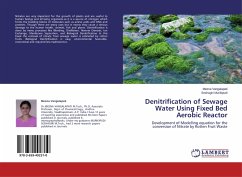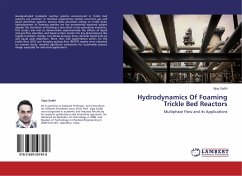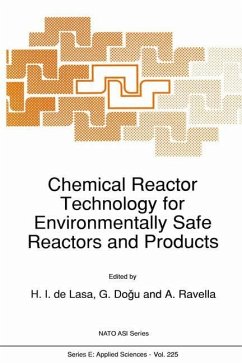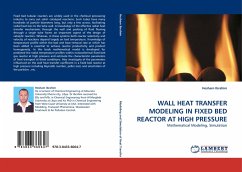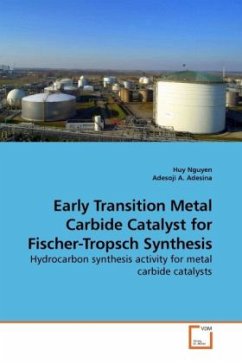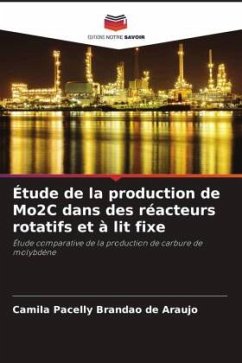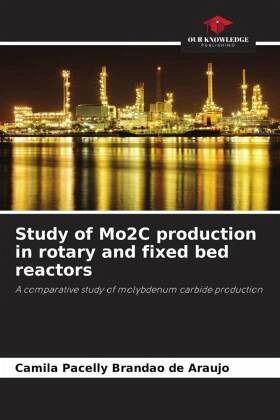
Study of Mo2C production in rotary and fixed bed reactors
A comparative study of molybdenum carbide production
Versandkostenfrei!
Versandfertig in 6-10 Tagen
24,99 €
inkl. MwSt.

PAYBACK Punkte
12 °P sammeln!
In addition to hydrocarbons, which make up the majority of oil, impurities such as sulphur, oxygen, nitrogen and metals can be found in the composition of crude oils. To obtain the final products, oil is refined. In refining, impurities are removed by physical and chemical processes. Sulphur compounds can be removed through hydrotreating reactions. Catalysts for this stage are usually metal oxides or sulfides, but secondary stages of processing can use metals, sometimes precious ones. Carbides have been shown to have catalytic activity sometimes superior to that of noble metals, as well as low...
In addition to hydrocarbons, which make up the majority of oil, impurities such as sulphur, oxygen, nitrogen and metals can be found in the composition of crude oils. To obtain the final products, oil is refined. In refining, impurities are removed by physical and chemical processes. Sulphur compounds can be removed through hydrotreating reactions. Catalysts for this stage are usually metal oxides or sulfides, but secondary stages of processing can use metals, sometimes precious ones. Carbides have been shown to have catalytic activity sometimes superior to that of noble metals, as well as lower poisoning rates. Obtaining carbides via a gas-solid reaction allows many of the difficulties of other processes to be overcome. In this work, the production of Mo2C is studied in two reaction systems: a fixed-bed reactor and a rotary reactor.






